- What Are Service Animals?
- Are Service Dogs Pets?
- Does the “No Pet” Policy of Covered Entities Apply to Service Animals?
- Can Service Dogs Travel in the Passenger Cabin?
- How Businesses Can Tell if a Dog is a Service Animal?
- Can You Train Your Dog to Become a Service Animal Yourself?
- When the Presence of Service Animals May Be Prohibited?
- Must a Service Animal Be Under the Control of Their Handler at All Times
- Are Businesses Allowed to Prohibit a Service Animal’s Presence Based on Their Breed Only?
- Are Businesses Responsible for the Service Animals while on their Premises?
- Can Service Animals Visit All Types of Covered Entities Without Any Restrictions?
- Service Dogs Housing Rights
- Are Service Dogs Allowed in Schools?
- Service Dogs in Hospitals
- Are Psychiatric Service Dogs (PSDs) Service Animals?
- Are Emotional Support Animals (ESAs) Service Animals?
- Are Therapy Dogs Service Animals?
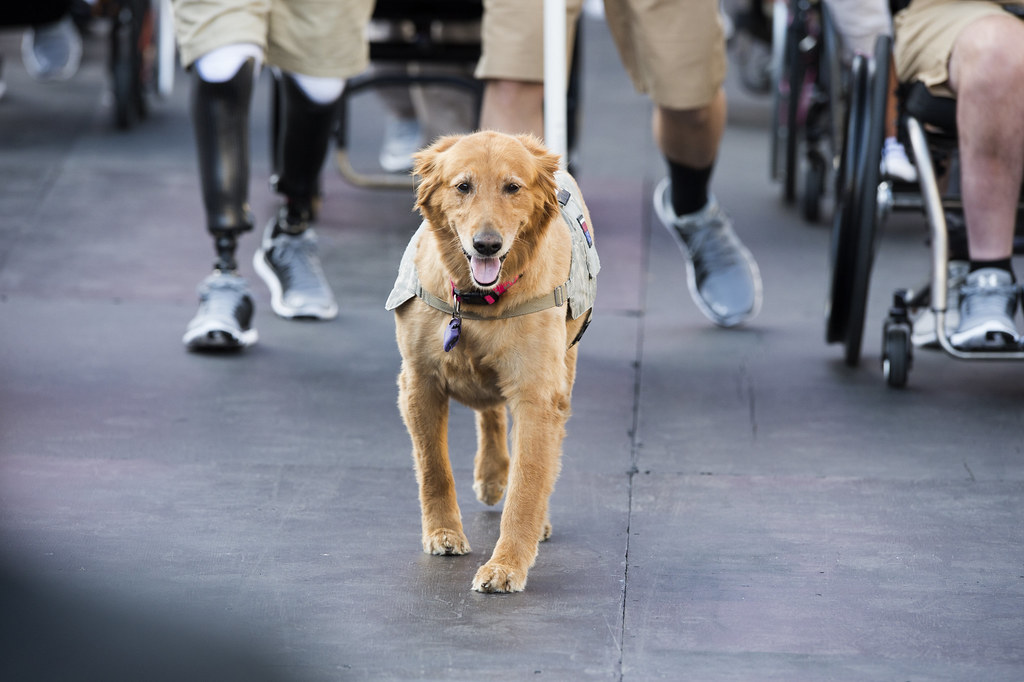
Service dogs have become an essential part of the lives of many people worldwide coping with physical and/or mental disabilities. Hence, there is no wonder that topics related to the rights and responsibilities of service animals are being actively discussed.
What places are service dogs allowed to visit and are there any access limitations for them are important questions, that we would like to answer today.
What Are Service Animals?
In order to take a closer look at the access rights of service dogs, we need to clarify the meaning of the term “service animals”. Service animals in the US are subject to the Americans with Disabilities Act (ADA) regulations and are defined as dogs, individually trained to perform specific tasks for the benefit of a person with a disability. The tasks that the dog performs must be directly related to the individual’s disability. You can find more information about the ADA regulations in regard to service animals in their section “Frequently Asked Questions”.
Are Service Dogs Pets?
Service dogs are not considered pets, but medical equipment, whose presence may be crucial for the health and safety of their owner.
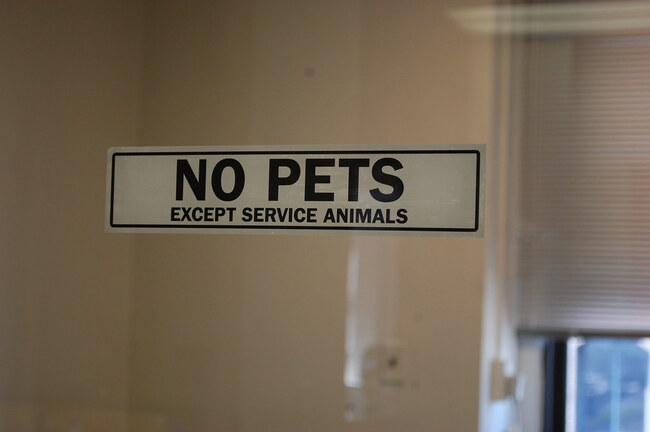
Does the “No Pet” Policy of Covered Entities Apply to Service Animals?
No. Service animals are allowed to accompany their owners while visiting businesses, state and local government agencies, as well as non-profit organizations that provide services or goods to the public. Covered entities are required to provide “reasonable modifications” to accommodate people with disabilities accompanied by service animals. In other words they must adapt their policies and practices so that their services are accessible for people with disabilities.
Can Service Dogs Travel in the Passenger Cabin?
Yes, they can. Handlers who would like to travel with their service dog, need to fill out:
-U.S. Department of Transportation Service Animal Relief Attestation Form (Relief Form) (for flights scheduled to take 8 hours or more),
to be able to bring their service animal in the passenger cabin.
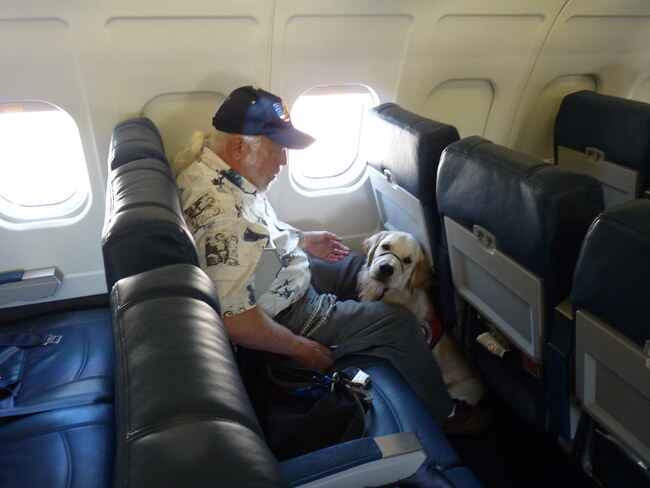
How Businesses Can Tell if a Dog is a Service Animal?
You may be required to answer two questions to prove the nature of your dog:
1. Is your dog a service dog due to a disability:
2. What tasks the dog has been trained to perform?
Covered entities in the US are not allowed to require certification or proof of training.
Can You Train Your Dog to Become a Service Animal Yourself?
The ADA allows handlers to train their own service dogs. However, if you are not a US citizen, you need to check your local regulations.
When the Presence of Service Animals May Be Prohibited?
According to the ADA covered entities are not required to modify their practices and policies in a way that will “fundamentally alter” the nature of the services or goods they provide.
Examples of fundamental alteration may be considered:
-The presence of a service animal at zoo areas where the dog is a natural prey or predator of the displayed animal and his/her presence may cause disruption;
-The presence of a service animal in areas designed for students allergic to dog fur.
Also, a service dog may be excluded if its presence violates safety standards.
If the service dog is out of control and their handler can not manage to control it, or the dog is not housebroken, his/her presence may be prohibited.
A service dog may be excluded from a facility if he/she misbehaves and poses a direct threat to the health and safety of other people.
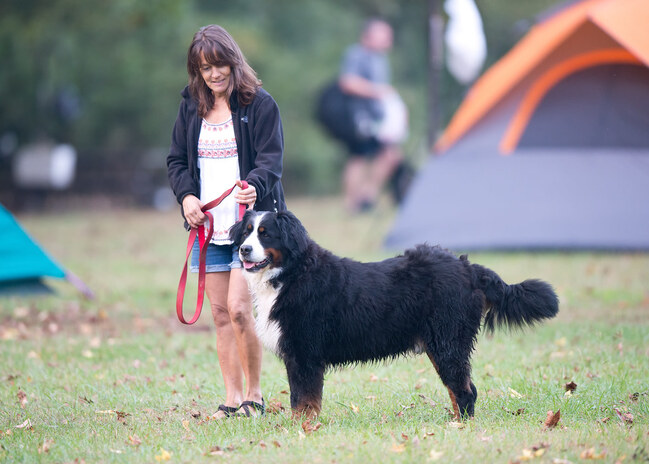
Must a Service Animal Be Under the Control of Their Handler at All Times
Yes, the animal must be under his/her handler's control at all times while in public-they must be harnessed, leashed or otherwise tethered. The ADA allows exceptions only in cases where these devices impede the ability of the service dog to perform the tasks he/she has been trained to do.
Are Businesses Allowed to Prohibit a Service Animal’s Presence Based on Their Breed Only?
The ADA prohibits discrimination against service dogs based on their breed. There are no restrictions in regard to the dog breeds, that can become service animals.
Are Businesses Responsible for the Service Animals while on their Premises?
No, handlers are responsible for their service animals at all times. Employees are not required to provide food, care or place the animal in a special area.
Can Service Animals Visit All Types of Covered Entities Without Any Restrictions?
Even if the service animal behaves properly, is leashed/harnessed, or otherwise tethered, there are certain premises where the presence of service animals may be prohibited. The ADA explicitly states that: “...churches, temples, synagogues, mosques, and other places of worship” are not required to allow service animals on their premises.
Another exception, listed on the ADA website includes gyms, fitness centers, hotels, and municipalities that have swimming pools. In this case, public health rules apply and service dogs may be prohibited from swimming pools. However, they still must be allowed on the pool deck and in other areas in the facility that the public is allowed to visit.
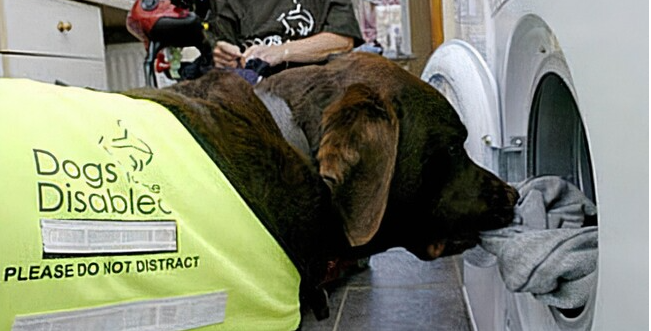
Service Dogs Housing Rights
Housing programs administered by state and local governments and places of public accommodation must comply with the ADA regulations. Moreover, the Fair Housing Act (FHA) applies to all types of housing (public and private) as well as housing that the ADA covers. Reasonable accommodation must be provided to animals that perform tasks, and provide assistance or emotional support to mitigate the symptoms of a disability.
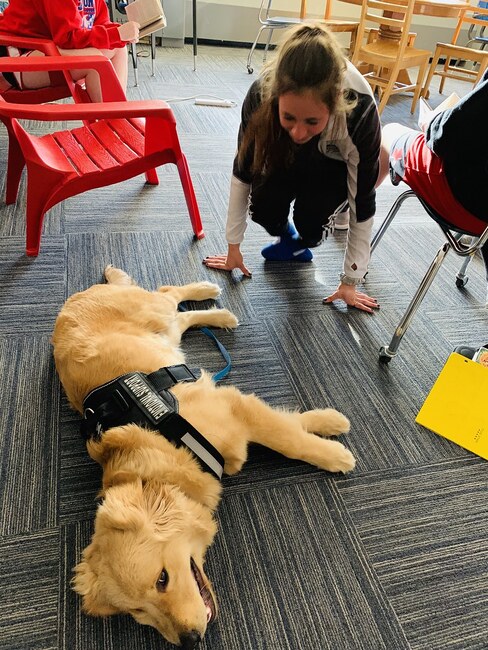
Are Service Dogs Allowed in Schools?
In general, yes! Service dogs are allowed on school premises, as they perform specific tasks that help an individual with a disability. However, there is the following exception: at boarding schools service dogs may be prohibited from areas, specially designed for students allergic to dog dander.
Service Dogs in Hospitals
If you have to go to the hospital, your service dog is allowed to stay in your room (the patient’s room) or visit all spaces on the premises, that are open to using by patients and the public. Also, service dogs are allowed to ride in the ambulance. In case they prevent the medical professionals from doing their job, relevant arrangements need to be made so that the dog can stay in the ambulance.
If a service dog handler is unable to take care of the dog while staying at the hospital, they can ask a family member or a friend for help. It is always recommended that the contacted relative or friend comes to the hospital, to take care of the service dog so that the dog and the handler will not be separated. If another person can not take care of the dog during the time of hospitalization, the dog may be placed in a boarding facility (after the handler agrees), until the handler goes out of the hospital.
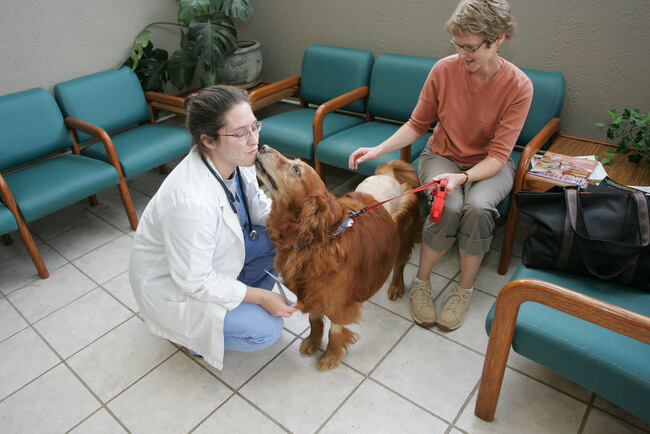
Are Psychiatric Service Dogs (PSDs) Service Animals?
Yes, they are. PSDs have the same rights that service animals have. Do not confuse them with Emotional Support Animals (ESAs). The ADA makes a clear distinction between both types of animals:
“If the dog has been trained to sense that an anxiety attack is about to happen and take a specific action to help avoid the attack or lessen its impact, that would qualify as a service animal. However, if the dog's mere presence provides comfort, that would not be considered a service animal under the ADA”.
Are Emotional Support Animals (ESAs) Service Animals?
No. Emotional Support Animals are a type of assistance animal, that provides comfort and companionship to their owner. Compared to service dogs, they are not trained to perform specific tasks, related to the individual’s disability. Hence, they do not have the public access rights, that service animals, and the “no pet” policy of covered entities apply to them. However, they are protected under the Fair Housing Act, which states:
“There are various protections from discrimination included in the FHA. For individuals with disabilities who want to have their animals, the relevant one is the duty of covered entities to provide reasonable accommodation defined as “a change, exception, or adjustment to a rule, policy, practice, or service.” If a tenant, or proposed tenant, asks permission to have an animal, and the provider has a “no pets” policy, FHA and Section 504 would both require that this be considered a request for reasonable accommodation. The threshold question is what kind of animal is the tenant requesting. FHA allows both “assistance animals” and “service dogs.”
Are Therapy Dogs Service Animals?
The answer is “No” again. Therapy dogs are trained to provide comfort and companionship to people in certain types of facilities like hospitals, nursing homes, schools, libraries...etc. Usually, therapy dogs help people go through therapy more easily, improve their motor functions and activity level, feel loved and safe. Therapy dogs need to go through evaluations that verify their obedience level so that they can be allowed to “work” on the premise. However, they can be denied access to public places, and the “no pet” policy of covered entities still applies to them.













